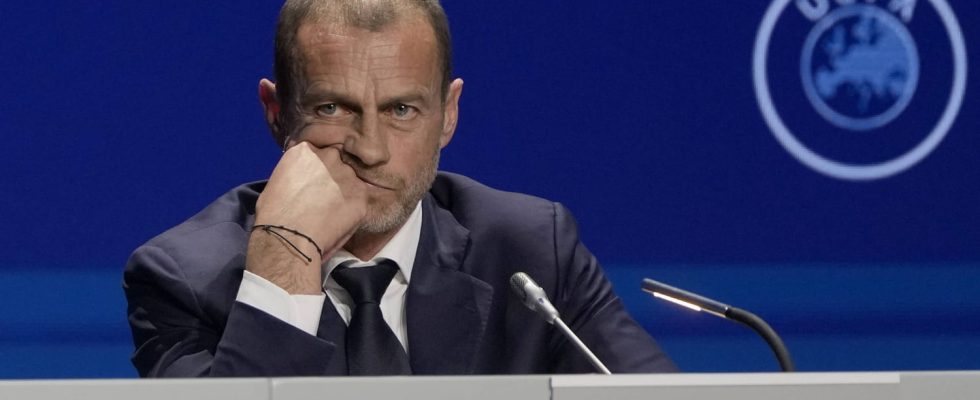European justice has declared “illegal” the sanctions envisaged by UEFA and FIFA in the event of the organization of the Super League. What future for European competitions?
A historic ruling from the Court of Justice of the European Union (CJEU), published this Thursday morning, declared “illegal” the rules of FIFA and UEFA “subjecting to their prior authorization the creation of any new project inter-club football competition, such as the Superleague, and prohibiting clubs and players from participating in it, under penalty of sanctions.” These measures, taken to prevent the creation of a possible European Super League, are an “abuse of dominant position” in the eyes of European justice, violating competition law.
The dispute began in April 2021, when twelve of the top clubs in England, Spain and Italy announced plans to create a European Super League, aiming to compete with the Champions League of UEFA. The proposed league quickly faced opposition from fans and the threat of sanctions from UEFA, ultimately leading to its abandonment. Although the unprecedented decision on Thursday 21 December focused on UEFA’s alleged monopoly, it deliberately refrained from passing judgment on the viability of a separate league, leaving the door open to possible future proposals. .
A historic victory for the Super League players
Bernd Reichart, president of A22, the sports management company that promotes the Super League, celebrated the ruling as an important victory: “We have won the right to exist. Clubs are now free from the threat of sanctions AND free to determine their own future.” Before adding a surprising statement: “For supporters: we offer free broadcasting of all Superleague matches.”
The president of real Madrid, Florentino Perez, welcomed the decision, declaring that “European club football is not and will never again be a monopoly”, emphasizing that clubs are now masters of their destiny. FC Barcelona, one of the driving forces behind the Super League project, also welcomed this decision via its president, Joan Laporta.
After the verdict, UEFA took note of the decision but clarified that it did not approve the concept of a Super League. UEFA expressed confidence in its new rules, saying they were in line with European laws and regulations. As of now, FIFA has not made an official statement on this matter. The Spanish League, firmly opposed to this project since its birth, reacted: “Today more than ever, we reiterate that the “Super League” is a selfish and elitist model. Anything that is not totally open, with direct access only through the national championships, season by season, is a closed format.”
A new Super League project?
The unfinished attempt to create a European Super League in April 2021 involved twelve major clubs from England, Spain and Italy. Nine of them initially withdrew due to negative reactions, but Real Madrid, FC Barcelona and Juventus maintained their commitment. Juventus then announced their intention to withdraw from any future plans in June 2023.
Organizers recently unveiled a new format for the Super League, aiming for a multi-division competition, with 60 to 80 teams qualifying solely on the basis of sporting performance, eliminating the idea of permanent affiliation. What will convince the smallest players in European football, who fear being permanently excluded from major competitions with this Super League project? Not necessarily, as national leagues remain generally opposed to the idea of a European championship, and fans showed virulent opposition across Europe during the previous project.
